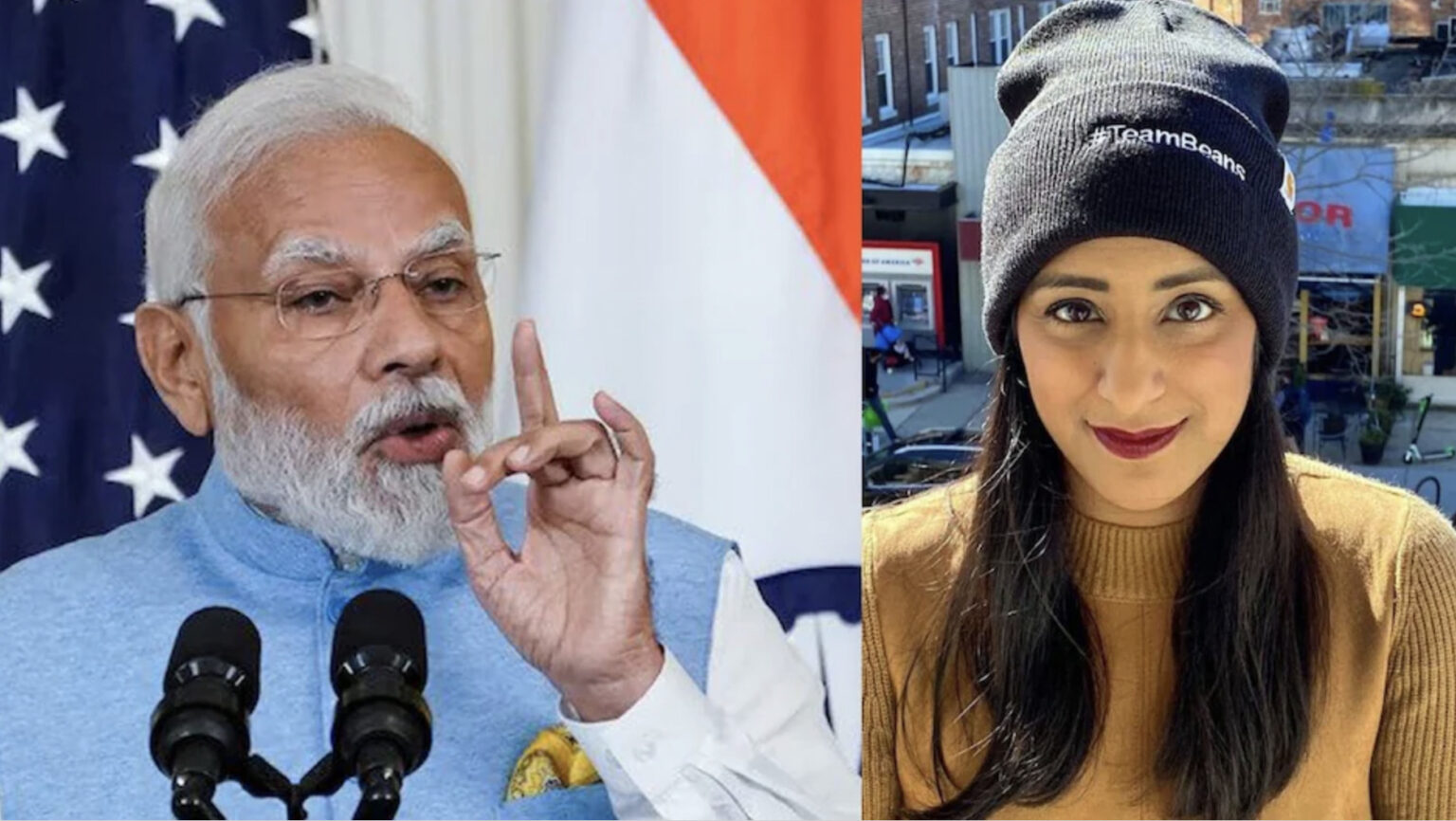The Wall Street Journal reporter Sabrina Siddiqui was subjected to online abuse after she asked Indian Prime Minister Narendra Modi a question about human rights at a joint press conference with US President Joe Biden. The US government has strongly condemned this behaviour and expressed its deep concern about it. Concerns regarding press freedom and how journalists are treated in democracies have been sparked by the episode. The South Asian Journalists Association, the Wall Street Journal, and the White House have all expressed support for Siddiqui and condemned the abuse. The comments and reactions from many parties concerned are explored in this article.
Harassment of Journalist Sabrina Siddiqui:
During the joint press address on June 22 at the White House, Sabrina Siddiqui asked PM Modi about the steps his government would take to improve the rights of religious minorities and uphold free speech in India. Her question shed light on concerns raised by human rights groups regarding discrimination against religious minorities in the country. However, following her question, Siddiqui faced intense online harassment. Critics, including BJP leader Amit Malviya, accused her of bias and questioned her heritage. In response, Siddiqui shared photographs of herself supporting the Indian cricket team, emphasising the complexity of personal identities and attempting to redirect the focus to the issues at hand.
White House Condemnation and Support:
During a routine press conference, John Kirby, the National Security Council Coordinator for Strategic Communications, addressed the harassment and said it was completely unacceptable. He emphasised that any form of harassment of journalists is unethical and undermines democratic norms. Kirby’s strong condemnation reflects the US government’s commitment to protecting the freedom of the press and ensuring a conducive environment for journalists to perform their duties. White House Press Secretary Karine Jean-Pierre reaffirmed the administration’s commitment to press freedom and denounced any intimidation or harassment of a journalist who is just doing their job. This White House declaration of support serves as a reminder of the value of preserving an atmosphere where journalists can freely and boldly look for answers to pressing concerns.
Wall Street Journal and South Asian Journalists Association Support:
The Wall Street Journal issued a statement defending her as a respected journalist known for her integrity and unbiased reporting. The statement expressed solidarity with Siddiqui and strongly condemned the harassment she faced. By emphasizing her professionalism and integrity, the Wall Street Journal sought to counter the unfounded attacks and redirect the focus back to the issue of press freedom and the importance of journalists being able to carry out their duties without fear of harassment or intimidation. The South Asian Journalists Association also expressed its support for Siddiqui, acknowledging the challenges faced by South Asian and female journalists in the field. In addition to reiterating the significance of press freedom in a democratic society, they denounced the harassment Siddiqui endured. They emphasised the association’s ongoing support for Siddiqui in their statement on Twitter, as well as the importance of her role in holding people in authority accountable through her journalism.
PM Modi’s Response and Biden’s Reaction:
During the press conference, PM Modi responded to Siddiqui’s question by asserting that discrimination has no place in Indian democracy and that India is committed to the values of democracy and human rights. He emphasized that the principles of democracy, including equality and free speech, are deeply embedded in the country’s DNA. When asked about President Biden’s response to Modi’s answer, Karine Jean-Pierre stated that it was for the prime minister to answer and for the public to critique. The focus remained on condemning the harassment faced by Siddiqui and supporting press freedom.
The incident underlines the need to defend journalists’ freedom to raise difficult issues and serves as a reminder of the difficulties they face in keeping those in positions of authority responsible. Ultimately, the focus should be on encouraging open communication, respecting differing points of view, and preserving journalism’s crucial role in political discourse.













